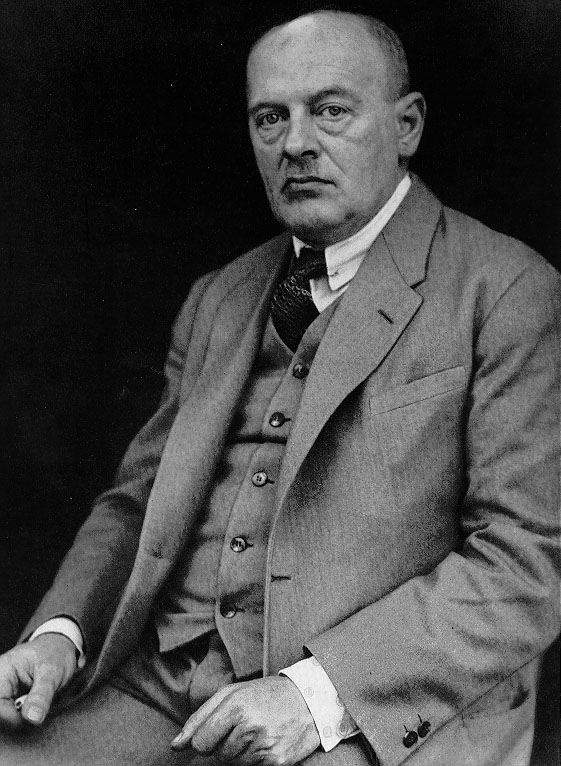Max Scheler słynne cytaty
Max Scheler: Cytaty po angielsku
Źródło: Das Ressentiment im Aufbau der Moralen (1912), L. Coser, trans. (1973), p. 73
Źródło: Das Ressentiment im Aufbau der Moralen (1912), L. Coser, trans. (1961), pp. 85-88
Źródło: Das Ressentiment im Aufbau der Moralen (1912), L. Coser, trans. (1961), p. 94
Źródło: Das Ressentiment im Aufbau der Moralen (1912), L. Coser, trans. (1961), pp. 96-97
“There is not enough love in the world to squander it on anything but human beings.”
An erster Stelle ist diese Menschenliebe die Ausdrucksform einer verdrängten Ablehnung, eines Gegenimpulses gegen Gott. Sie ist die Scheinform eines verdrängten Gotteshasses! Immer wieder führt sie sich mit der Wendung ein, es sei doch „nicht genug Liebe in der Welt“, als daß man einen Teil noch an außermenschliche Wesen abgeben könnte—eine echte von Ressentiment diktierte Wendung!
Abhandlungen und Aufsätze (1915), p. 184
As cited in Albert Camus, The Rebel. However the passage is ironic and Scheler's intention was the exact opposite. The full quote reads: "In the first place this love of mankind is an expression of suppressed hatred, a revulsion against God. It is the expression of a suppressed hatred of God! It keeps coming back to the strange idea that "there isn't enough love in the world" for one to expend any on other than human beings - a real distortion dictated by ressentiment!'
Źródło: Das Ressentiment im Aufbau der Moralen (1912), L. Coser, trans. (1961), p. 93
Źródło: Das Ressentiment im Aufbau der Moralen (1912), L. Coser, trans. (1961), p. 96
Das Ressentiment im Aufbau der Moralen (1912)
Źródło: Das Ressentiment im Aufbau der Moralen (1912), L. Coser, trans. (1961), pp. 100-101
Das Ressentiment im Aufbau der Moralen (1912)
Źródło: Das Ressentiment im Aufbau der Moralen (1912), L. Coser, trans. (1961), pp. 95-96
Źródło: Das Ressentiment im Aufbau der Moralen (1912), L. Coser, trans. (1961), p. 92
Źródło: Das Ressentiment im Aufbau der Moralen (1912), L. Coser, trans. (1961), pp. 88-92
Źródło: Das Ressentiment im Aufbau der Moralen (1912), L. Coser, trans. (1973), pp. 77-78
Wariant: The man of ressentiment cannot justify or even understand his own existence and sense of life in terms of positive values such as power, health, beauty, freedom, and independence. Weakness, fear, anxiety, and a slavish disposition prevent him from obtaining them. Therefore he comes to feel that “all this is vain anyway” and that salvation lies in the opposite phenomena: poverty, suffering, illness, and death. This “sublime revenge” of ressentiment (in Nietzsche’s words) has indeed played a creative role in the history of value systems. It is “sublime,” for the impulses of revenge against those who are strong, healthy, rich, or handsome now disappear entirely. Ressentiment has brought deliverance from the inner torment of these affects. Once the sense of values has shifted and the new judgments have spread, such people cease to been viable, hateful, and worthy of revenge. They are unfortunate and to be pitied, for they are beset with “evils.” Their sight now awakens feelings of gentleness, pity, and commiseration. When the reversal of values comes to dominate accepted morality and is invested with the power of the ruling ethos, it is transmitted by tradition, suggestion, and education to those who are endowed with the seemingly devaluated qualities. They are struck with a “bad conscience” and secretly condemn themselves. The “slaves,” as Nietzsche says, infect the “masters.” Ressentiment man, on the other hand, now feels “good,” “pure,” and “human”—at least in the conscious layers of his mind. He is delivered from hatred, from the tormenting desire of an impossible revenge, though deep down his poisoned sense of life and the true values may still shine through the illusory ones. There is no more calumny, no more defamation of particular persons or things. The systematic perversion and reinterpretation of the values themselves is much more effective than the “slandering” of persons or the falsification of the world view could ever be.
Źródło: Das Ressentiment im Aufbau der Moralen (1912), L. Coser, trans. (1973), pp. 76-77
Źródło: Das Ressentiment im Aufbau der Moralen (1912), L. Coser, trans. (1961), pp. 99-100
Źródło: Das Ressentiment im Aufbau der Moralen (1912), L. Coser, trans. (1961), p. 92
Źródło: Das Ressentiment im Aufbau der Moralen (1912), L. Coser, trans. (1973), p. 68
Das Ressentiment im Aufbau der Moralen (1912)
Źródło: Das Ressentiment im Aufbau der Moralen (1912), L. Coser, trans. (1973), p. 56
Das Ressentiment im Aufbau der Moralen (1912)
The latter, more detached than the former from definite objects, tries to bring about ever new opportunities for *Schadenfreude*.
Das Ressentiment im Aufbau der Moralen (1912)
Das Ressentiment im Aufbau der Moralen (1912)
Źródło: Das Ressentiment im Aufbau der Moralen (1912), L. Coser, trans. (1973), pp. 54-55
Źródło: Das Ressentiment im Aufbau der Moralen (1912), L. Coser, trans. (1973), p. 50
Źródło: Das Ressentiment im Aufbau der Moralen (1912), L. Coser, trans. (1973), pp. 66-67
Źródło: Das Ressentiment im Aufbau der Moralen (1912), L. Coser, trans. (1973), p. 74
Źródło: Das Ressentiment im Aufbau der Moralen (1912), L. Coser, trans. (1973), pp. 61-62
Źródło: Das Ressentiment im Aufbau der Moralen (1912), L. Coser, trans. (1973), pp. 52-53
Źródło: Das Ressentiment im Aufbau der Moralen (1912), L. Coser, trans. (1973), p. 59
